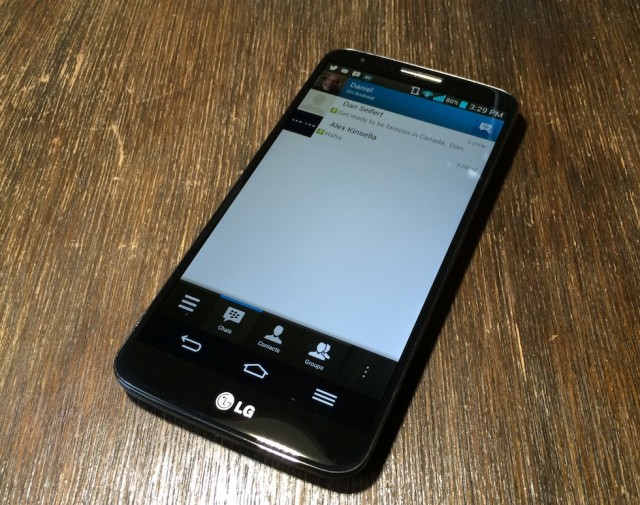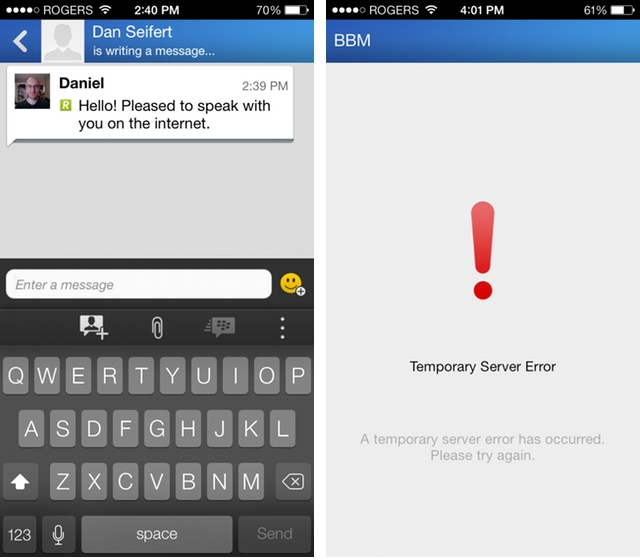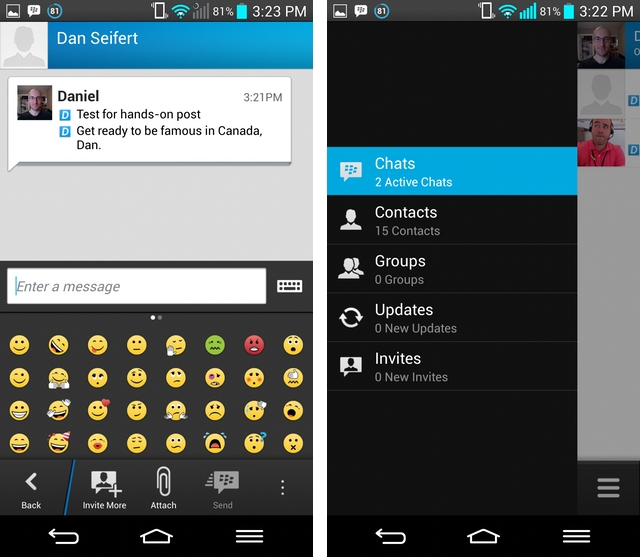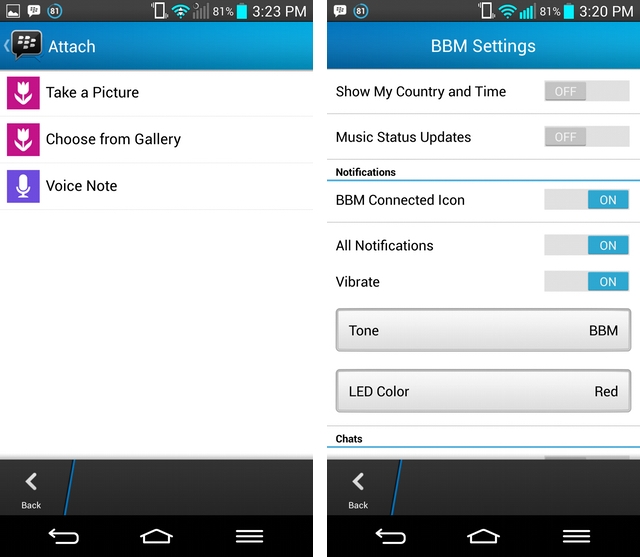
Well, it’s here. The messaging app that ushered in a revolutionary swell of which it is no larger a part is now back… sort of.
The app has been released for iOS and Android devices, and while it is available to download, at the time of writing users must wait in a virtual cow pen, awaiting their turn to cross the threshold.
At once, BBM is a familiar, yet alienating, experience. The app’s design borrows from BlackBerry 10’s Cascades UX, which works well when every other app is so designed, but less so when it follows none of the established rules of the platform it’s on. The contrast is less stark on Android, where app uniformity is more a guideline than a rule, but on the iPhone the app just feels out of place. (It’s not as bad as WhatsApp, though, and at least it has been rebuilt using the iOS 7 SDK, so there’s that.)
When you enter the app, and get past the waiting list, what follows is a series of screens guiding you through the login or, if you don’t have a BlackBerry account (and you won’t if you haven’t used one of their devices since 2011), signing up for one. You’ll enter a name; you’ll get a PIN that can be shared with the world. This is the BBM experience, and the company doesn’t want to fix what ain’t broke.
On Android and iOS, the core functionality is present: you can add users, change your profile, share your PIN, send and receive messages, add one of a myriad emoticons, check if your message is still “D” or, if you’re lucky, turned to “R”. There are also BBM Groups, which can be formed and users invited to within the app. That’s it. No BBM Video, no crystal-clear audio. It’s a barebones experience that exists to bridge the messaging app gap between iOS, Android and BlackBerry.
While the app is experiencing some launch day pains, I found it to deliver push notifications quickly and reliably. There are some quirks: it’s not possible to log into more than one BBM instance, so this is strictly a half-duplex affair. While this may be disappointing to users coming from Google Hangouts or Facebook Messenger, one must remember that BBM’s lineage is mobile, and focuses on running adroitly from one device to another.
Let’s talk about functionality for a moment. iOS 7 introduced a system-wide back or return gesture which is achieved by swiping right from the left side of the screen. BBM for iOS does not employ this; rather, tapping on the top-left arrow returns to the previous screen.
On Android, however, this isn’t the case: you can swipe right from the left side of the screen to return to a previous menu, even if there’s no specific visual guide or animation to prompt it. The Android back button also appears to fit better with the whole Cascades style; in fact, the whole Android version appears to have significantly more polish than the equivalent iOS app.
Android users can look forward to a few more customization features than iOS; they can change the LED colour and incoming notification tone, as well as the option to see a permanent BBM icon in the notification bar. BlackBerry warns users that turning off this option could delay or stop notifications from coming in, indicating that the company is using an older and potentially battery-hungry way of keeping the app process alive. Most modern Android messaging apps have adopted the Google Cloud Messaging API for this very reason.
Nevertheless, this is a good opportunity for the Waterloo company, battered by bad news and a sinking stock price. While it’s not clear what’s going to happen to BlackBerry the company in the long term, BBM the service will likely stick around well after the last consumer BlackBerry devices have been sold.
The introduction of BBM for Android and iOS would have been more warmly welcomed two or even three years ago, but as it stands the apps have arrived and will only get better from here. Expect BBM Channels, currently in beta on BlackBerry 10, to see a release on iOS and Android later this year or early 2014, and BBM Video, if properly implemented, could steal a bit of market share from Skype, FaceTime and Hangouts.
[source]iTunes, Google Play[/source]





